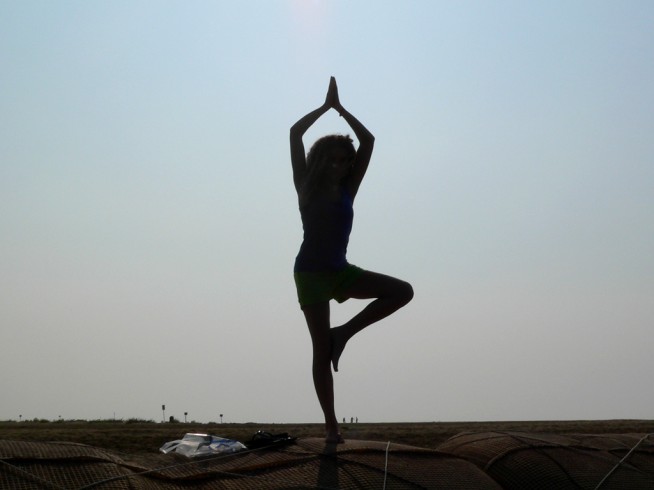In the early years of my yoga practice, I enjoyed an occasional yoga class or retreat. I would go to the local studios in New York City or visit an ashram in the countryside. I would do this whenever I felt like I wanted to participate in something, usually during the downtime between gigs as a fashion model. I practiced when I felt like it, when it was convenient for me.
I was not alone in this behavior. Over the years, many people around me practiced yoga and made other commitments to the yogic lifestyle when it suited them, as if it was something to do one afternoon as an alternative to other pursuits like going out to lunch or to the movies. And why wouldn’t people do this? We’ve been told for our whole lives that “variety is the spice of life.” We love trying new restaurants, seeing new movies, reading new books, and feeling like we’re forever expanding our horizons with new and flavorful experiences. If we create variety, then our life will have meaning.
However, having a spiritual practice—having sadhana—is based on something else entirely.
Ancient Indian scripture like the Vedas teaches us that practice consists of repeating the same process continuously. This could be repeatedly refocusing the mind on an object of concentration, repeatedly reciting a mantra, or otherwise practicing adeptness at a certain act again and again. Rather than be a matter of one day practicing some postures and the next day trying out a vegetarian diet and the next day sampling a session of chanting with friends, it would consist of choosing one or more practices and repeating them daily.
Why is repetition such an important part of this process? Repeating something as part of a practice often seems like it’s only good at creating a sense of restlessness and frustration.
But as this restlessness is constantly challenged, we start to break down the walls in our mind.
@yogicameron (Click to Tweet!)
Our struggles begin to unravel and we see our true selves with greater clarity. Without a continuous indulgence of the senses through new food and new entertainment, we determine the cause of our personal suffering and distractions and can then move forward with greater contentment.
I experienced a loss a little over a decade after I began sampling different spiritual practices. This helped me to solidify my intentions: Instead of taking the occasional class, I went to my own mat every day. Instead of going on a retreat and eating vegetarian food as a novelty, I stopped eating meat entirely. Instead of reading new books to feel entertained, I repeatedly read the Bhagavad Gita. As I worked through the many, many times I didn’t want to practice, I broke down the walls in my mind. I then found my purpose with far greater clarity.
It was through this transition that I discovered how consistency and discipline help us to discover our path.
And variety takes us off of it.
Yogi Cameron left the world of high fashion as a supermodel to pursue an ongoing study of Ayurveda and Yoga. He has been featured on The Dr. Oz Show, The Ellen DeGeneres Show, The Today Show, Extra, E! Entertainment, and Martha, amongst others. The Guru in You, his first book, was published by HarperCollins in 2011 and his follow-up book The One Plan was published in 2013. Yogi has brought Yoga and meditation in Afghanistan as part of the reintegration program to prepare the country for troop withdrawal and has worked with young girls rescued from sex trafficking practices in Cambodia in coordination with the Somaly Mam Foundation. You can also find him on Twitter, Facebook and his website.
Image courtesy of Umberto Salvagnin.












